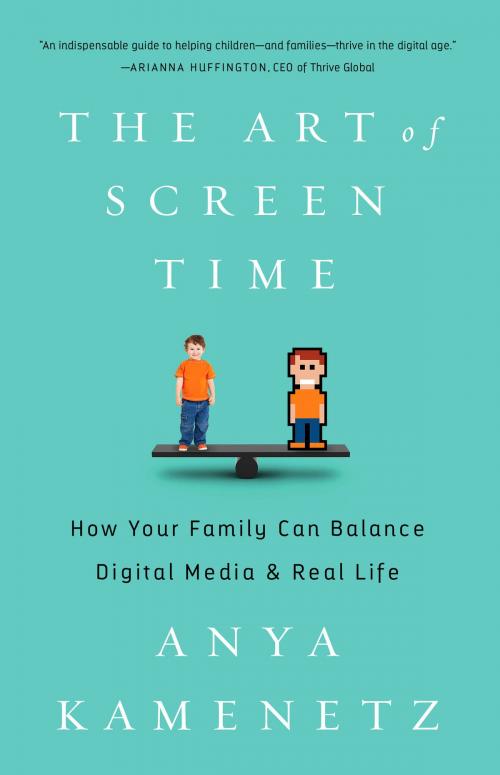The Art of Screen Time
How Your Family Can Balance Digital Media and Real Life
Nonfiction, Health & Well Being, Psychology, Child & Adolescent, Child Development, Family & Relationships, Parenting| Author: | Anya Kamenetz | ISBN: | 9781610396738 |
| Publisher: | PublicAffairs | Publication: | January 30, 2018 |
| Imprint: | PublicAffairs | Language: | English |
| Author: | Anya Kamenetz |
| ISBN: | 9781610396738 |
| Publisher: | PublicAffairs |
| Publication: | January 30, 2018 |
| Imprint: | PublicAffairs |
| Language: | English |
Finally, an evidence-based, don't-panic guide to what to do about kids and screens.
Today's babies often make their debut on social media with the very first sonogram. They begin interacting with screens at around four months old. But is this good news or bad news? A wonderful opportunity to connect around the world? Or the first step in creating a generation of addled screen zombies?
Many have been quick to declare this the dawn of a neurological and emotional crisis, but solid science on the subject is surprisingly hard to come by. In The Art of Screen Time, Anya Kamenetz--an expert on education and technology, as well as a mother of two young children--takes a refreshingly practical look at the subject. Surveying hundreds of fellow parents on their practices and ideas, and cutting through a thicket of inconclusive studies and overblown claims, she hones a simple message, a riff on Michael Pollan's well-known "food rules": Enjoy Screens. Not too much. Mostly with others.
This brief but powerful dictum forms the backbone of a philosophy that will help parents moderate technology in their children's lives, curb their own anxiety, and create room for a happy, healthy family life with and without screens.
Finally, an evidence-based, don't-panic guide to what to do about kids and screens.
Today's babies often make their debut on social media with the very first sonogram. They begin interacting with screens at around four months old. But is this good news or bad news? A wonderful opportunity to connect around the world? Or the first step in creating a generation of addled screen zombies?
Many have been quick to declare this the dawn of a neurological and emotional crisis, but solid science on the subject is surprisingly hard to come by. In The Art of Screen Time, Anya Kamenetz--an expert on education and technology, as well as a mother of two young children--takes a refreshingly practical look at the subject. Surveying hundreds of fellow parents on their practices and ideas, and cutting through a thicket of inconclusive studies and overblown claims, she hones a simple message, a riff on Michael Pollan's well-known "food rules": Enjoy Screens. Not too much. Mostly with others.
This brief but powerful dictum forms the backbone of a philosophy that will help parents moderate technology in their children's lives, curb their own anxiety, and create room for a happy, healthy family life with and without screens.















